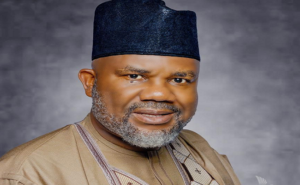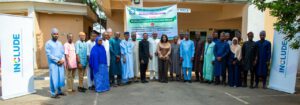The curriculum review will also develop National Occupational Standards (NOS) for solar installations, addressing widespread technical flaws in existing practices.
By Deborah Hassan
365Daily – The House of Representatives has taken a bold step to bridge the skills gap in Nigeria’s renewable energy sector by backing a major overhaul of the national curriculum for solar technologies.
Chairman of the House Committee on Renewable Energy, Hon. Victor Ogene, said the move follows a recent resolution mandating all government ministries, departments, and agencies to transition to renewable energy sources for their power needs. He said the urgent skills shortage in the sector must be addressed to support this directive.
“To meet the growing demand for renewable energy, we must build a workforce that is trained, certified, and ready to deliver,” Ogene said. “This curriculum review is not just timely—it is necessary.”

The curriculum overhaul, led by the National Board for Technical Education (NBTE), involves a review of the National Diploma (ND) programme in renewable energy and the development of two new Higher National Diploma (HND) programmes—one in Solar Photovoltaic (PV) and another in Solar Thermal technologies.
The initiative is supported by the INCLUDE Knowledge Platform, African Studies Centre Leiden (ASCL), the Government of the Netherlands, and the House of Representatives.

Executive Secretary of the NBTE, Prof. Idris M. Bugaje, said the review aims to align Nigeria’s technical education with the needs of a green economy. He noted that Nigeria generates less than 30 watts of electricity per capita, with over 60 per cent consumed by just two states—Lagos and Ogun.
“If we’re serious about industrialisation and expanding access, decentralised solar energy is not just a solution—it’s a necessity,” Bugaje said.
He added that Nigeria has the potential to produce its own solar PV cells, thanks to high-purity silica deposits in states like Daura and Jigawa, but this potential can only be realized with a skilled workforce trained in advanced solar technologies.
The curriculum review will also develop National Occupational Standards (NOS) for solar installations, addressing widespread technical flaws in existing practices. “We’ve seen too many rooftop solar systems failing due to incorrect tilt angles. These failures aren’t just inefficient—they’re dangerous,” Bugaje warned.
Victoria Manya, Knowledge Manager at ASCL-INCLUDE, commended the collaboration, saying it would lay the groundwork for inclusive development and energy justice. “We’re proud to support a process that puts young Nigerians at the center of the renewable energy economy,” she said.
The workshops, which began in Abuja, will progress in phases—starting with the ND review and moving on to the HND programmes. Stakeholders from government, academia, and the private sector are working to ensure the curriculum meets global standards and local needs.
NBTE pledged continued engagement with partners to deliver a practical and future-ready curriculum capable of powering Nigeria’s transition to clean energy.